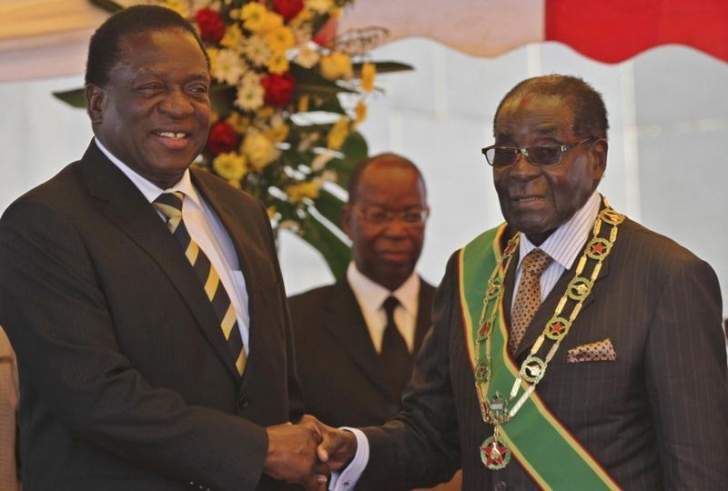Life After Mugabe – The Organization Of World Peace

The Organisation of World Peace has posted the following article that speaks about life after Robert Mugabe who ruled Zimbabwe for 37 years on their website.
The organization noted President Mnangagwa’s election campaign promises and all the promises he made when he ascended to the highest office in the land at the back of a military coup that toppled his boss and long term friend.
The people of Zimbabwe were promised job creation, a thriving economy and human rights reforms after the military coup that ousted Robert Mugabe from power three years ago. After the coup, the Mnangagwa administration came to power and in a bid to differentiate themselves from Mugabe, the government pledged towards stabilizing the economy and ensuring democratic political processes. However, Zimbabwe is currently experiencing a rife economic crisis characterized by high inflation, food insecurity and rampant unemployment. The hardships have intensified under the pressures of the pandemic.
The deteriorating economy underpins the plethora of concerns regarding the situation in Zimbabwe. The hyperinflation can be traced back to the adoption of U.S. currency in 2009 which led the country to be vulnerable to international influences. After the Mnangagwa takeover, there were major cuts on government spending and austerity measures created financial hardship on the public. Currently, the inflation rate is at 800%, where more than 70% of the populous experience poverty. According to economist Victor Bhoroma, “The employment council points over 1.2 million formal jobs have been lost in the last 18 months.” The economic hardship is starkly reminiscent of the lives of Zimbabweans under the rule of Mugabe, thereby deeply undermining the confidence of the Mnangagwa administration.
Similarly, food insecurity and the lack of access to clean, drinking water is an extreme problem Zimbabwean society is facing. Last December, the World Food Programme stated 7.7 million people were food insecure. The situation has progressively worsened as a result of natural droughts, which have dried up the water reservoirs. The desperate search for water has led to thousands being forced to drink sewage water for survival. Moreover, during this crisis, women and young girls are most at risk as there have been reports of abuse at water boreholes. The lack of access to water and regulation by government officials has led to people staking claim over the water pumps, where they demand money or sexual favours for water.
Furthermore, pregnant women are forced to pay bribes to health staff to deliver their babies. The lack of funding and infrastructure has created an environment susceptible to corruption. The healthcare system has further deteriorated under the pressures of COVID-19 and according to the Zimbabwe Demographic Health Survey (ZDHS 2015) the estimated maternal mortality ratio (MMR) for Zimbabwe is 651 deaths per 100,000 live births. The right to healthcare is enshrined in the constitution of Zimbabwe which has led women launching a case to the city authorities to reopen medical clinics. The corruption and violation of rights exposes the weaknesses in the infrastructure of Zimbabwe. More significantly, however, it denotes the limits of the Mnangagwa administration to uphold their promises of safeguarding civil liberties for Zimbabwe.
Notwithstanding Mnangagwa’s efforts to differentiate itself from Mugabe, the political policies and actions regarding human rights of the populace has not seen substantial change. The undermining of liberty and freedom remain bound in legislation through the Access to Information and Protection of Privacy Act (AIPPA), in which freedom of press and speech are restricted. Moreover, despite, Mnangagwa committing to international re-engagement, there has been little engagement with the international community. Specifically, the United States and the European Union and other international bodies have criticized Mnangagwa for human rights abuses, however, all allegations have been denied.
For the people experiencing hardship in Zimbabwe, it is hard not to be sceptical. According to Chivedede, a resident of Zimbabwe, “I have not seen any change since Mnangagwa took over. In fact, things have gotten worse.” Hence, it is evident that despite promises of democracy and political and economic prosperity, there has been little in the way of tangible change for the lives of the people in Zimbabwe. However, in early August the U.S. Treasury imposed sanctions on Kudakwashe Tagwirei, a wealthy business ally of Mnangagwa. Thereby, in the wake of economic downturn, the sanctions signify that international loans may be dependent on tackling corruption present in the governance which may incite change for the betterment of the people of Zimbabwe.
–The Organisation of World of Peace




